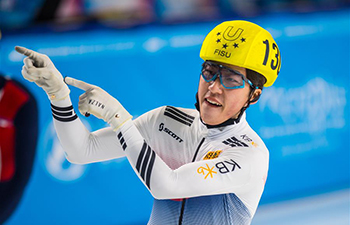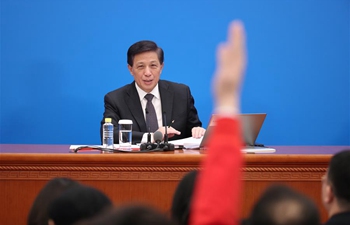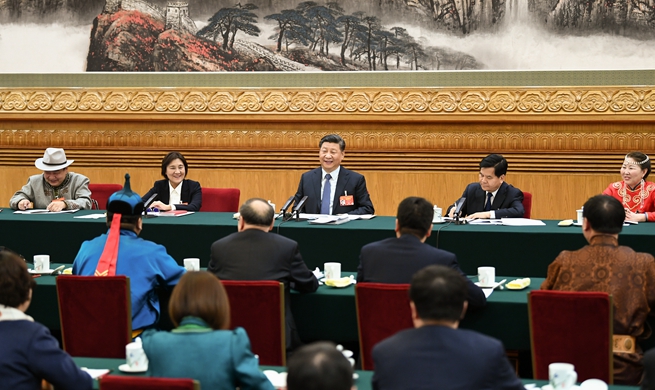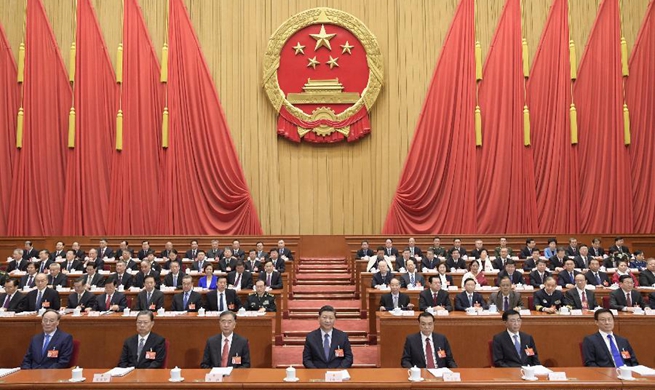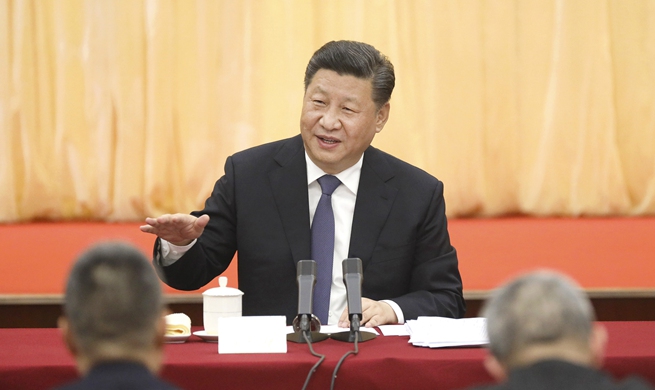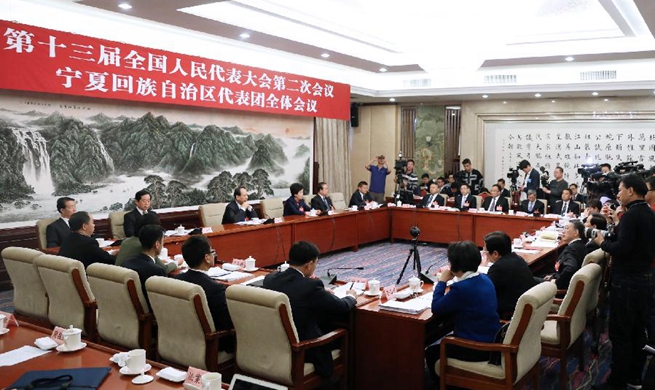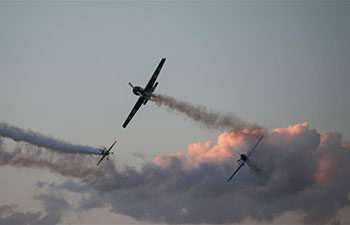by Keren Setton
JERUSALEM, March 6 (Xinhua) -- Albert Einstein is known as a brilliant scholar and scientist, also a father and friend who concerned about the fate of Europe in the Nazi era.
This part of his life was revealed on Wednesday at the Hebrew University in Jerusalem, when 110 documents written by Einstein were unveiled.
The collection was recently donated to the university which hosts the largest collection of original documents written by the Nobel Prize winner.
In his will, Einstein bequeathed his personal and professional writings to the university, of which he was one of the founders. According to Roni Grosz, the curator of the archives, there are over 82,000 documents in the collection.
"This is a rare finding," Grosz said at an event during the unveiling at the Givat Ram campus of the Hebrew University. "This is a very special day for the archives. It strengthens our position as the foremost go-to center of Einstein information."
The documents give a glimpse into Einstein's personal life and moments of self doubt that the scholar has experienced. 30 years after winning the Nobel Prize in psychics, Einstein confessed to a friend that he still did not know how to explain what light particles are.
"A whole 50 years of pondering has not brought me closer to the question," Einstein wrote in a letter dating back to 1951. "Nowadays any fool thinks he knows the answer, but he deceives himself."
The bunch of documents was acquired by the Crown-Goodman foundation from a personal collector living in the United States. The foundation then donated the documents to the Hebrew University. The sum paid for the documents was unknown.
While much of the content in the documents was known to "Einstein-philes," people were particularly excited at a lost page of an appendix to a 1930 article which the scientist had published. The paper was a significant milestone in his many attempts to formulate a single unified theory for gravitation and electromagnetism.
"For historians of science, it is very important to have manuscripts because then one sees how he actually worked," said Hanoch Gutfreund, the academic advisor to the archives. "Many of these papers, we still don't know what they relate to and it will still require significant research."
"These papers show how Einstein's creative brain worked, what bothered him and in which order he wrote down his thoughts and conclusions," Gutfreund added.
Most of the collection consists of papers with tiny hand-written mathematical calculations. A piece of page was also found describing the basic principle of the atomic bomb and the nuclear reactor.
There are four personal letters between Einstein and his friend Michele Besso and a letter to his son Hans Albert, who lived with Einstein's estranged wife in Switzerland.
"The German armament must be extremely dangerous," he wrote to his son in 1935, worrying about the rise of Nazi Germany and the war that was brewing.
Einstein himself moved from Germany to the United States in 1933 after the rise of Adolf Hitler.
Present at the event was Karen Cortell Reisman whose father was Einstein's cousin. For her wedding, she recalled, she asked her parents to give her a letter the world-renowned scientist once wrote together with them.
"I didn't really want a piece of china or silver; just this letter," she told the audience in Jerusalem.
"The only thing I inherited from Albert Einstein is his hair texture, the frizzy hair," Reisman said laughingly. "I cannot explain to you the theory of relativity."
The documents were revealed just days before Einstein's 140th birthday. They will be digitized and accessible to the public in the near future. For Gutfreund and his excited colleagues, it was a reason to celebrate.
"I cannot think of a better, more lavish or fitting birthday gift than this," Gutfreund said.







